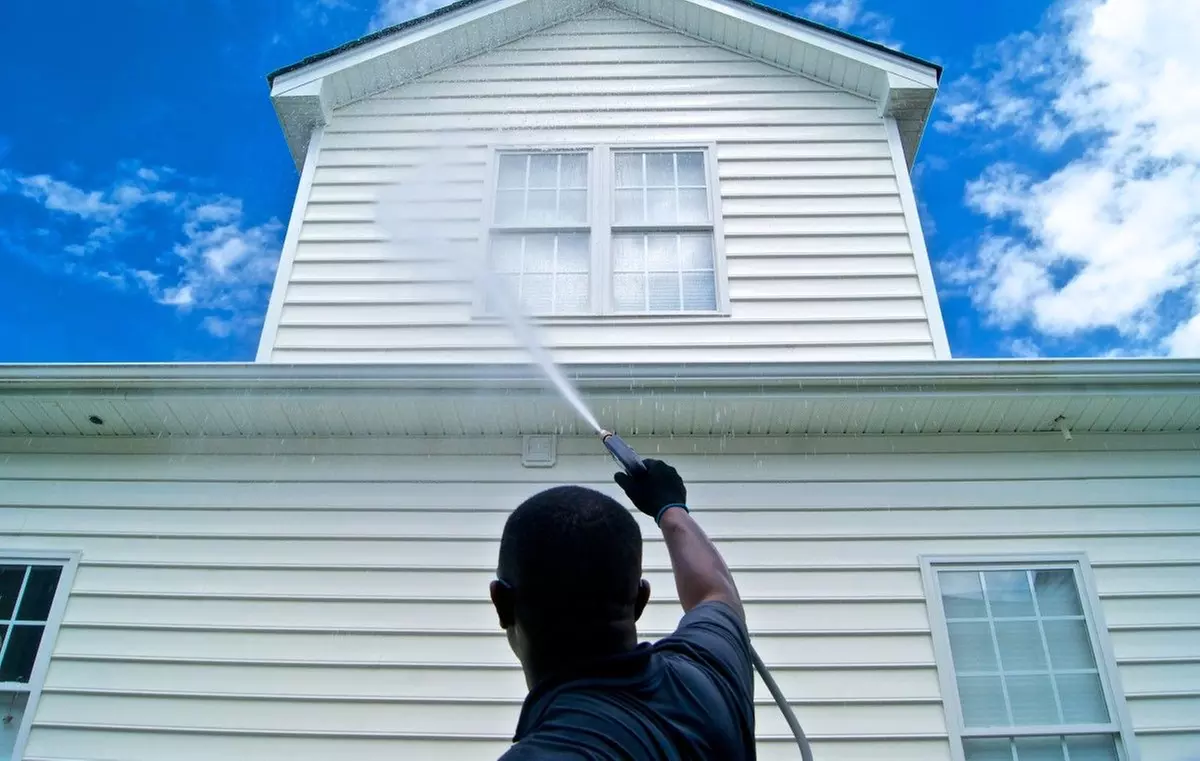What Can Pressure Washing Clean? You’ll Be Surprised!
 James Liam
James LiamKeeping your property’s exterior clean is more than just a matter of looks—it’s a vital part of maintenance that protects your home or commercial space from long-term damage. While many people associate exterior pressure washing with siding or driveways, its benefits extend much further.
Exterior pressure washing is a versatile, powerful method that removes stubborn grime, mold, mildew, algae, and even pollutants. But what exactly can it clean? The answer might surprise you.
Why Exterior Pressure Washing Matters
Over time, dirt and debris naturally accumulate on outdoor surfaces. This buildup doesn’t just look bad—it can damage materials, weaken structural integrity, and reduce property value. In Ladson SC, many property owners rely on SC SoftWash Pros for regular exterior cleaning that prevents premature wear, improves safety, and instantly enhances curb appeal.

Professional exterior pressure washing also supports a cleaner, healthier environment by eliminating organic growth like mold and algae that may pose health risks. Whether for a home or commercial building, routine cleaning is an investment in longevity and aesthetics.
So, What Can It Actually Clean?
1. Siding and Walls
Pressure washing removes years of dirt, mildew, and airborne pollutants from vinyl, brick, stucco, and other exterior surfaces. It restores brightness and removes streaks caused by moisture buildup or pollution. If you're budgeting for exterior services, here’s a comprehensive breakdown of cleaning service costs to help you plan effectively.
2. Driveways and Walkways
Concrete and asphalt can trap dirt, oil stains, tire marks, and algae. Pressure washing these surfaces enhances appearance and improves safety by reducing slip hazards.
3. Decks and Patios
Wooden decks and stone patios often become discolored due to mold and weather exposure. Pressure washing gently removes grime without damaging the surface, making them safer and more attractive.
4. Fences
Whether vinyl, wood, or metal, fences can look weathered and dull over time. A thorough pressure wash can strip away algae, moss, and stains, reviving your fence’s natural appearance.
5. Garage Doors and Exterior Doors
These surfaces are high-touch and prone to grime buildup from handprints, dust, and pollution. Pressure washing keeps them looking sharp and functioning properly.
6. Gutters and Downspouts (Exteriors Only)
Cleaning the outer surfaces of gutters removes mold, dirt streaks, and water stains. It also enhances overall curb appeal when done as part of a full house wash.
7. Roof Shingles (Soft Washing Method)
While traditional pressure washing isn't suitable for roofs, a soft-washing technique can be used to clean asphalt shingles, tile, and metal roofs safely. This removes moss, algae, and black streaks without damage.
8. Outdoor Furniture and Fixtures
Plastic, wood, or metal furniture can be safely cleaned with adjusted pressure to remove dirt, mildew, and bird droppings—restoring usability and appearance.
9. Pool Areas
Pool decks often collect mildew, sunscreen oils, and grime. Pressure washing refreshes concrete, stone, or tile surfaces and helps prevent slippery conditions.
10. Commercial Storefronts and Entryways
First impressions matter. Clean storefronts and walkways create a welcoming environment for customers while also extending the lifespan of exterior materials.
How Often Should You Pressure Wash?
Frequency depends on your location, climate, and the materials used on your property. Homes in humid or coastal areas may need service every 6–12 months to manage mold and salt buildup. In milder climates, once a year is usually sufficient.
For commercial properties with high foot traffic or visibility, quarterly cleaning may be ideal for maintaining a polished appearance and clean working environment.
Benefits of Professional Exterior Pressure Washing
Hiring a professional ensures surfaces are cleaned safely and thoroughly using the right pressure levels and techniques. It also:
Prevents surface damage from incorrect DIY methods
Extends the life of materials like wood, siding, and concrete
Improves hygiene by removing allergens, mold, and bacteria
Enhances property value and visual appeal
Prepares surfaces for painting, staining, or sealing
Professionals often offer bundled exterior services, including driveway cleaning, siding wash, and deck restoration—ideal for seasonal maintenance or pre-sale property preparation.
Local Considerations for Pressure Washing
Exterior cleaning needs vary by region. Areas with frequent rainfall or high humidity may experience quicker mold growth, while dry, dusty climates cause faster dirt accumulation. That's why local pressure washing services customize cleaning schedules and treatments based on climate, materials, and surface conditions.
Whether it’s a residential property or a commercial storefront, routine exterior pressure washing tailored to your local environment keeps everything looking sharp and lasting longer.
Conclusion
Exterior pressure washing is more powerful and versatile than many property owners realize. From siding and driveways to patios, furniture, and fences, it offers a safe and effective way to protect and refresh almost every exterior surface.
Making it part of your regular property maintenance not only boosts curb appeal—it protects your investment and improves the longevity of the surfaces that matter most.
FAQs
1. Can pressure washing damage my surfaces? When done incorrectly, yes. But professionals use proper techniques and equipment settings to clean safely without harm.
2. How often should I schedule exterior pressure washing? Generally once per year, though high-traffic or humid areas may require cleaning every 6–9 months.
3. What surfaces should never be pressure washed? Delicate surfaces like windows, painted wood, or older shingles should either be soft-washed or cleaned with caution.
4. Is pressure washing environmentally safe? Yes, when eco-friendly detergents and proper runoff controls are used. Many services now use biodegradable solutions.
5. Can I do it myself or should I hire a pro? DIY is possible but risky. Professionals have the tools, experience, and know-how to clean safely and efficiently.
Subscribe to my newsletter
Read articles from James Liam directly inside your inbox. Subscribe to the newsletter, and don't miss out.
Written by
